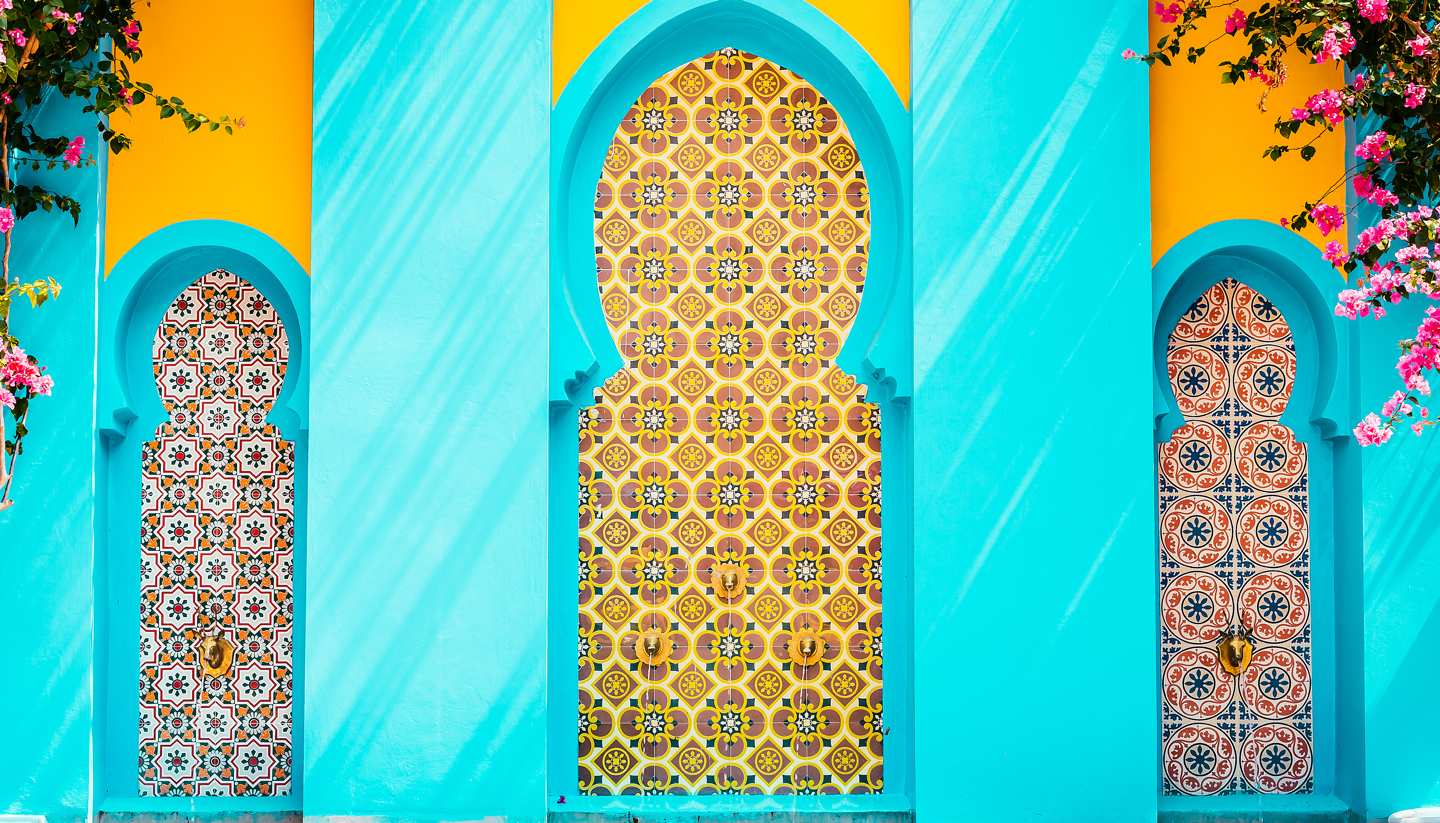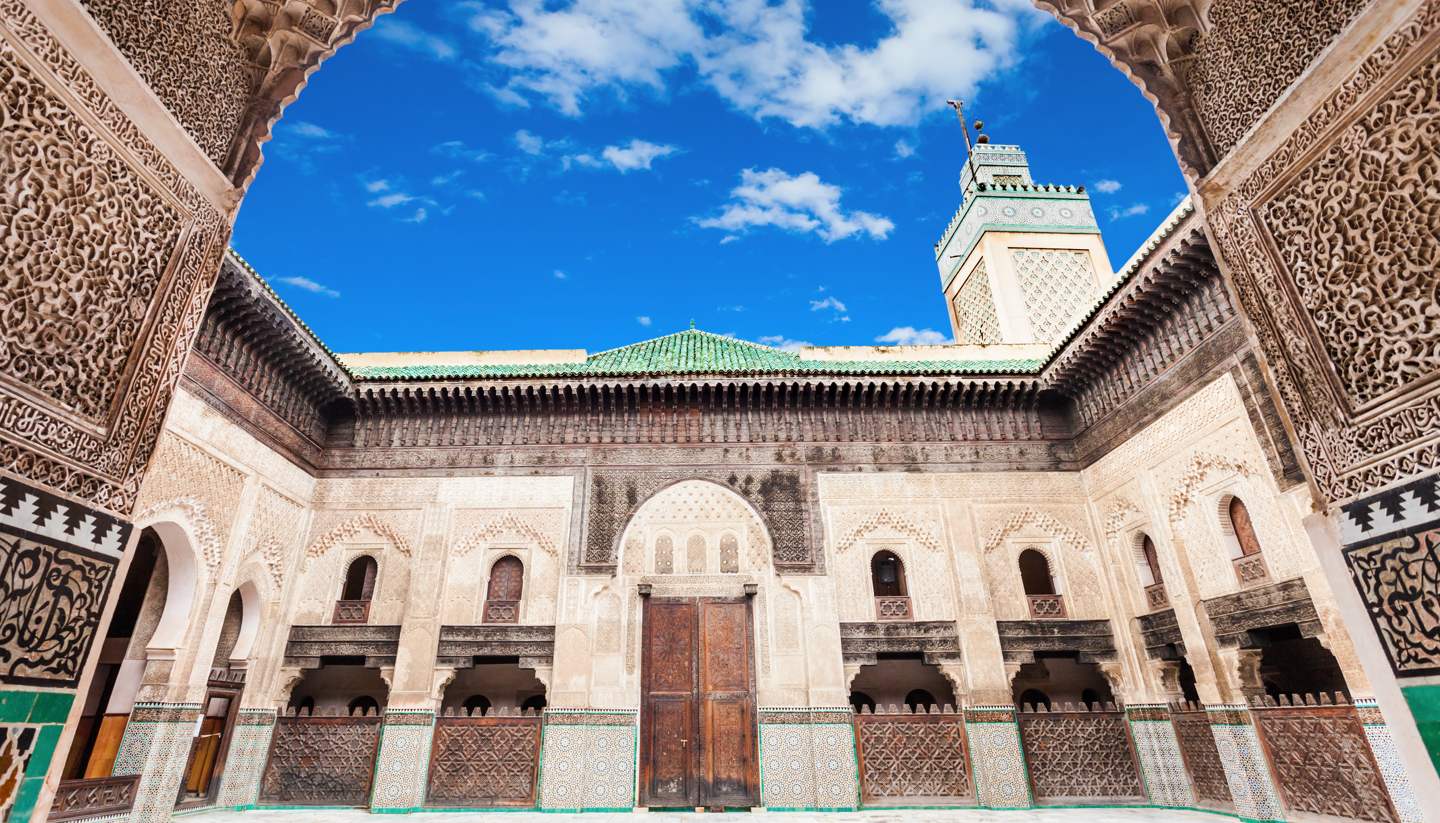Morocco History, Language and Culture
History of Morocco
Whether you're strolling through the narrow streets of a medina, shopping for spices in a busy souk, or following a tour guide up to a remote Berber village, you can't escape the power of Moroccan history and the unique influences from the Berber, Arab, African, and later Spanish and French.
The indigenous Berber people are thought to have lived in Morocco, especially the Atlas Mountains range, for thousands of years. They survived through the Ancient Roman period and later a cycle of rising and falling Islamic dynasties. In 1884, Spain established a protectorate in coastal areas of Morocco and then the French came in 1912 and made Morocco their protectorate (while Spain was allowed to operate in Zones of influence in northern and southern Morocco).
In 1956, Morocco gained its independence following unrest but Spain kept its two coastal enclaves – Ceuta and Melilla. Sultan Mohammed V was reinstalled; this means that the Alaouite dynasty, which has been reigning since 1666, continues to rule to this day.
Did you know?
• The Guinness World Records consider al-Qarawiyyin or Karueein University, founded in Fez in 859, to be the oldest in the world.
• The world's largest swimming pool is in Casablanca. It is 480m (1,574 ft) long and 75 m (246 ft) wide, and has an area of 3.6ha (8.9acres).
Morocco Culture
Religion in Morocco
99% of Morocco's population are Muslims (almost all Sunni Muslims). Jewish, Christians and other religions make up the other 1%.
Social Conventions in Morocco
Morocco's culture is a blend of religious and ethnic traditions, encompassing Berber, Arab, African, Mediterranean, and Jewish influences. Greetings between men usually start with "Salam Alaikum" (peace be upon you) and may either involve a handshake or kisses on both cheeks, followed by friendly inquiries after health, happiness and family. Females may kiss on the cheeks, usually three times.
Travellers should observe local courtesies. Men and women should not wear revealing clothing in public – beachwear, sleeveless tops, shorts, and clingy clothing are acceptable by the hotel pool but not in public places.
Sexual relations outside marriage and homosexual conduct are punishable by law, yet Morocco has long been a destination favoured by LGBTQ+ travellers given its liberal reputation in the 1950s and 60s. While modern Moroccans are tolerant, displaying affection in public between same-sex couples is best avoided.
Smoking is widespread, though prohibited in enclosed public spaces.
Drinking alcohol in public isn’t allowed, and should be consumed discreetly indoors.
Language in Morocco
The official languages are Arabic and Tamazight (which is a combination of three major Moroccan Berber languages).
French is widely spoken, while English is understood in major tourist attractions.



